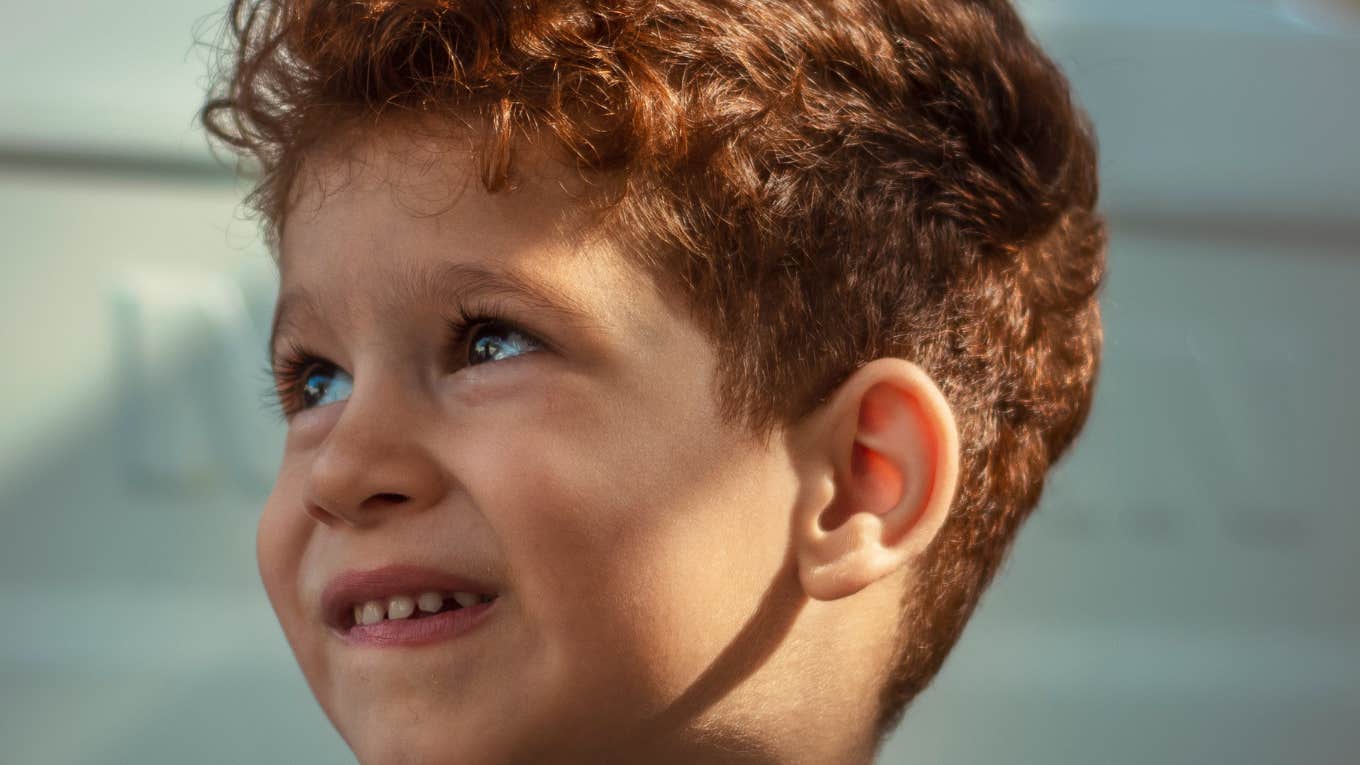4 Reasons Parents Who Hire A Tutor Raise Emotionally Weak Kids
The best way to teach your kids is to let them fail.
 Kamran Ch | Unsplash
Kamran Ch | Unsplash Every year, I help high-achieving Silicon Valley high school students with their college applications. One thing I've noticed is that many of my students have tutors — often in every subject — even though they're straight-A students.
As a psychologist, I find this troubling. There are four very powerful psychological reasons why your student shouldn't have a tutor and why it can lead to emotionally weak kids. Unless, of course, they're legitimately struggling in an academic subject and need the extra help.
Here are 4 reasons parents who hire a tutor raise emotionally weak kids:
1. Your child's confidence plummets
When you hire your child a tutor they don't need, it sends a very powerful signal: "You can't do this on your own. You need help, every step of the way."
That's a major blow to their confidence, and could ultimately lead to "imposter syndrome," a psychological phenomenon in which people are unable to internalize their accomplishments. Instead, they attribute their success to external factors, like their tutor. (Note: if your child is a high-achieving female, she's especially at risk.)
Moreover, decades of research show independence breeds confidence. Think of it this way: there's a reason that pretty much every fairy tale, storybook, and Disney movie ever begins by taking the parents out of the picture.
It's because children build confidence by learning how to manipulate the world around them on their own. When you provide tutors unnecessarily, you rob them of this opportunity.
2. Your child learns dependence
 Brenda Carson / Shutterstock
Brenda Carson / Shutterstock
Tutor frenzy teaches kids that they can't do it on their own, so they become dependent on external sources of help. This prevents them from developing critical thinking and study skills.
Learned dependence is a psychological phenomenon in which people develop a reliance on external help rather than building their internal strategies to learn and solve problems. This can potentially hinder their confidence and critical thinking skills when facing challenges independently.
Instead, they show up at tutoring each week (or day!), and the tutor organizes their time for them; prioritizes the different assignments and knowledge for them; makes notes and study guides for them; and schedules study sessions and homework time for them.
Under these circumstances, the child won't learn how to be a responsible adult. So what are they going to do when they get to college? Continue having a tutor in every subject. What about after college? Are they going to get a job tutor?
One thing I can guarantee they won't do: is suddenly (magically) develop independence, study skills, time management skills, critical thinking skills, etc. If you excessively hire tutors for your kid, you could be setting them up for failure in college. And possibly life.
3. Your child learns a lack of accountability and diffusion of responsibility
Part of becoming an adult is taking accountability for your actions. But when you have a tutor, this might never happen. When you do well on a test, you don't quite feel good about it, because it's not a result you achieved through your hard work; it's a result your parents paid someone to help you achieve.
And, equally important: when you do poorly, you don't have to feel too bad about it. I mean, it's not your fault; your tutor didn't prepare you well enough. They should've known that X would be on the test; they should've made a note in your study guide. It's not because you didn't work hard enough — it's because your tutor didn't.
When students don't feel strong personal accountability for their grades, it diminishes the joy and pride they can feel at a job well done... and it diminishes the responsibility they feel for a bad outcome.
4. Your child's stunted coping skills decrease resilience
 wavebreakmedia / Shutterstock
wavebreakmedia / Shutterstock
Because your child doesn't feel whole, or personally responsible for their disappointments and failures, they won't learn the coping skills they'll need to stay mentally healthy and undertake ambitious projects in both college and the real world.
As a parent, one of the most important things you can do for your child's long-term mental health is to let them fail. Having a tutor gives them a shortcut.
Instead of facing a disappointing academic outcome — and asking themselves, "What did I do wrong? Did I give it my best effort? What can I do differently next time?" — they rely on the tutor to figure things out for them. (And, as mentioned above, put at least some of the responsibility on the tutor, instead of owning their mistakes.)
Here's the thing about children: you can't insulate them from bad things forever. Eventually, they're going to run into problems you can't fix for them.
They're going to have to face a problem on their own. It's not if; it's when. And when the time comes, you want your child to have the emotional and cognitive maturity to turn a disappointment into a learning opportunity.
Especially considering that, to achieve success in the digital age, your child is going to have to be a big thinker. They're going to have to take chances and try things that no one's tried before.
And their ideas and endeavors aren't always going to work. You have to start teaching them that it's okay to fail sometimes now, so they're not totally risk averse in the future.
But let's say that you, like any well-meaning parent, still want to give your child their best chance for success. What is the best investment? In my opinion, it's not a tutor — it's a life coach.
Think of it this way: good grades and SAT scores are important, but they're not going to make your child stand out to a college admissions officer. What will? I wish there were an easy answer, but there isn't. Because it depends entirely on your child.
Instead of hiring a tutor, find someone who can help your child discover what they can do better than anyone else, whether it's vintage fashion, building tree forts, coming up with interesting research queries, or gathering pilot data and blogging about it. Find someone who can help your child discover what they're truly excited and curious about and the best possible way to develop and demonstrate this curiosity.
Find someone who can help connect your child with the best possible internships, projects, and learning opportunities — not someone who's going to help them get a slightly better score on the SATs.
Trust me: demonstrating genuine curiosity and niche expertise is way more interesting to colleges than taking as many APs as possible. A student who takes a lot of APs demonstrates that they're someone who can follow the path that almost every other gifted student at their school is following.
They demonstrate that they'll come to your school and take advantage of ... the library. Meanwhile, a student who demonstrates that they create opportunities that didn't already exist, and weren't laid out in front of them? That's a student who will take this university by storm.
With the ultra-competitive state of college admissions, showing real passion and curiosity is becoming increasingly important to your child's college application. A growing number of elite schools are turning towards SAT-optional, and even SAT-blind, admissions.
Real passion — not test scores and GPAs — are the future of college admissions. Finally, let's talk a little bit about mental health, since, presumably, that's a parent's number one priority.
A life coach, someone who can connect your child with intrinsic goals and interests, rather than extrinsic ones, can improve your child's mental health. According to the self-discrepancy theory, we all have three selves: your actual self (who you are), your ideal self (who you want to be) and your ought self (who you think others want you to be).
Research shows that when you work towards a goal related to your ideal self, you are driven by a desire to succeed. And when you achieve your goal, you feel joy.
But when you work towards a goal related to your ought self (good grades, better SAT scores, etc.), you've driven a fear of failure; and when you achieve your goal, you don't feel joy — you feel relief.
In other words, life coaches foster joy and a desire to succeed; tutors foster fear of failure and relief. Life coaches foster independence, accountability, and coping skills, and tutors foster learned dependence, diffusion of responsibility, and low confidence. Which do you want for your child?
Eva Glasrud has a Masters Degree in psychology from Stanford University and is and education consultant at Paved With Verbs. She also runs The Happy Talent, a blog about social and leisure skill development.

